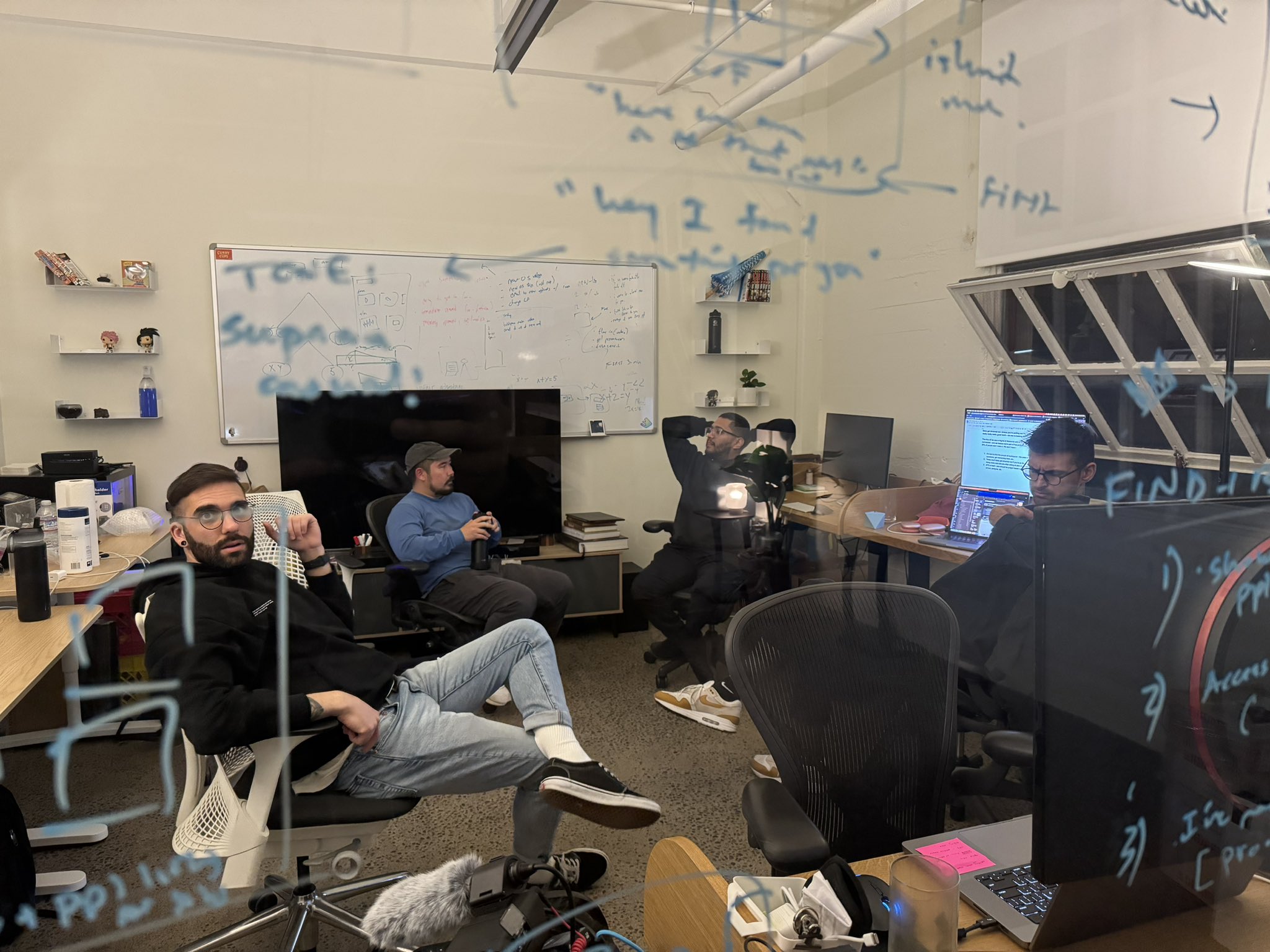visions
May 16, 2024

Note: this is targeted specifically at founders. But, the same learnings apply to anyone who’s brave enough to create something from nothing — creators, musicians, filmmakers, physics researchers, etc.
You don't need a vision to start a company.
I've raised $12M for my company + hired amazing people -- and until very recently, whenever anyone would ask me my 10-year plan I would flat out say "I have no idea".
And that was the truth.
I just embraced not knowing.
Because, being fake Steve Jobs ain't it.
For many years I was trying to be some sorta visionary. I was playing theatre to inspire and to excite those around me.
Why?
Well.
It felt like all the great CEOs, film directors, writers, basically anyone that did something worthwhile — it felt like they all had this god-given vision for the company they wanted to build, the movie they wanted to make, the book they wanted to write.
And I felt like a damn fool.
Because I had nothing but my laptop, and a lot of motivation to make…something.
I was deeply insecure about my lack of vision, my lack of “unique insights” about the future of the world, my lack of ability to articulate what I wanted to build.
But, every book I read said I needed these things to be successful.
So I started acting like I did.
Like I had a grand plan.
But it was painful. That wasn't me.
I am not naturally a guy that can tell great stories, or speak in a really persuasive way.
I am naturally the dude that quietly works in a corner day in and day out until the work is done. Since childhood, I’ve just been a quiet grinder. I enjoy finding the answers by working towards them.
But, I kept the act up where I had a ton of fake confidence in my “vision”.
There were many, many nights where I felt deeply pained pretending to be someone else for entire months in a row.
So in 2019 when I was 23, I switched it up.
I just started telling the truth.
I stopped caring what others thought of me.
I started being myself.
I started admitting I had no idea what I was going towards, but sure that I was going towards…something.
A lot of people ended up thinking I was an idiot.
Many, many potential high value hires and investors would just look at me like a fool when I admitted to not having a vision.
I couldn't describe our next 365 days let alone the next 10-years. But I would always say:
"Down to figure it out together?".
Many never hit me up again.
But, what ended up happening is I ended up attracting very different types of people...
People that were down to navigate the unknown with me.
People that didn't need me to excite them with a vision/pep talk every week.
People that trusted that we would figure it out together.
And today, these are the people that make up the wonderful team at buildspace.
Same goes with our investors.
They were all people that knew I didn't have this beautiful vision of the future, but they trusted me to figure out the long-term magic.
Why did these all these people "trust" me?
Well, most people say they'll do something and then you never hear from them after 2-years. Seriously. That’s usually how it goes.
I had a long history of consistently saying I would do something, then doing it, and then updating people on results (whether I failed or succeeded).
This was more my style.
Just doing the work vs playing theatrics.
So, I kept this up for many, many years.
Trust in me was built on results vs me being this persuasive, visionary founder that was able to convince others of anything.
It's important to note here:
You eventually do need a clear long-term view of the future, you can't ignore it.
Fantastic things aren't built on 1-2 year timelines.
They often take 10-20 years.
But this ability to have a long-term view is a skill you build overtime.
It's not a magical genius plan that randomly hits you.
You improve your ability to have a clearer view of the long-term by deeply immersing yourself in your craft. You can’t force a vision.
You let it come to you naturally, bit by bit, over years and years by dedicating yourself to a single craft.
For example:
Let’s say you want to make great movies.
Then Year 1 you should make a movie. Year 2, you should make another movie. By Year 3, you’ve learned a lot from Year 1 + 2 and have a better “vision” for your Year 3. Then Year 3 + 4 you make two more movies and learn a ton more about making movies, what scripts you wanna write, how you wanna advertise movies, the types of people you wanna hire for your set, etc.
Your “vision” for Year 5 becomes clearer.
If you keep this up, by Year 10 you’ll not only have even better 10-20 year vision for your movies…
You’ll also be 100X more equipped to actually execute on that vision.
Replace movies with: building a generational company, making the world’s best sushi, whatever.
The boring reality is: you need trust that by just doing the daily work to the best of your ability and dedicating yourself, that things will figure themselves out. But, that trust in yourself is everything.
Many will give up because the fog of war is to intense.
Even I’ve thought about giving up hundreds of times.
Only now, nearly 5-years later, thousands of work days later, millions in revenue later, a whole team hired later — only now am I starting to have a long-term vision for my work + the future of the company.
5. Damn. Years. Later.
But hey, I'm feeling better than ever about our long-term work.
It feels clear…
I'm excited.
And I got some great homies working alongside me.

TLDR:
You don’t need a vision to start.
A vision is something you work towards.
You must trust that by doing the work, you’ll get there.
Most importantly, don't be someone you're not. Focus on improving yourself and solving your flaws, but, never pretend to be someone.
Be yourself, and, you'll figure it out.
I promise.